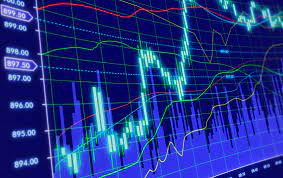Emerging markets usually appear to offer new investment alternatives. Also, their faster economic growth provides higher expected returns, while also offering diversification.
However, a number of risks should be mentioned. So if you’re thinking of investing in emerging markets, you should be reading this article.
Foreign Exchange Rate Risks
Investments in foreign stocks and bonds usually produce returns in the local currency. That means you will have to convert the local currency back into their domestic currency. For instance, an American who buys a Chinese stock will have to buy and sell the asset using the Chinese yuan.
Thus, currency volatility can affect the total return of the investment if, let’s say, the local value of a held stock increased by 5 percent, but the yuan depreciated by 10 percent, the investor will experience a net loss in terms of total returns when selling and converting back to US dollars.
Non-Normal Distribution
North American market returns arguably follow a pattern of normal distributions. As a result, financial models can be used to price derivatives and make somewhat accurate economic forecasts about the future of equity prices.
Emerging market securities, on the flip side, cannot be valuated using the same type of mean variance analysis. Additionally, because emerging markets are undergoing constant changes, it’s almost impossible to use historical information in order to draw proper correlations between events and returns.
Insider Restrictions
Even most countries claim to implement strict laws against insider trading; none has proven to be as vigorous as the US in terms of prosecuting these practices.
Insider trading and various forms of market manipulation introduce market inefficiencies, by which equity prices will massively deviate from their intrinsic value. This kind of system can be under extreme speculation. It can also be heavily controlled by those holding privileged information.
Lack of Liquidity
Emerging markets in general have less liquidity than those that are in developed economies. This market imperfection leads to higher broker fees and a higher level of price uncertainty. Investors who try to sell stocks in an illiquid market face huge risks that their orders will not be filled at the current market price, and the transaction will only go through at an undesirable level.
Also, the brokers will charge higher commissions, as they have to make more diligent efforts to find counterparties for trades. Markets with low liquidity stop investors from getting the benefits of fast transactions.
Raising Capital
A banking system that’s still underdeveloped will prevent companies from having the access to financing that is required to grow their businesses.
Attained capital will typically be given at a high required rate of return, increasing the company’s weighted average cost of capital.
The major concern with having a high WACC is that fewer projects will produce high enough return to yield a positive net present value. Thus, the financial systems in developed nations do not permit firms and companies to undertake a higher kind of projects that let them generate profits.


